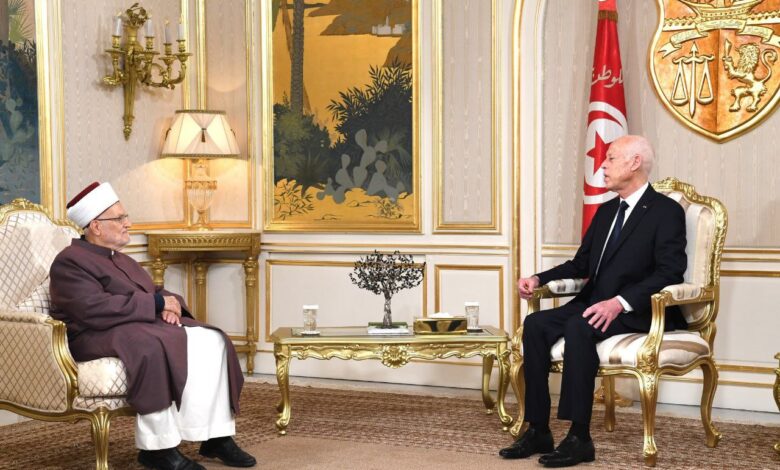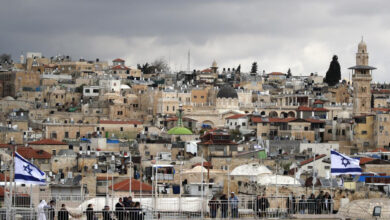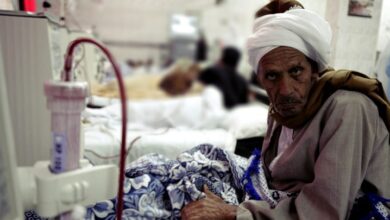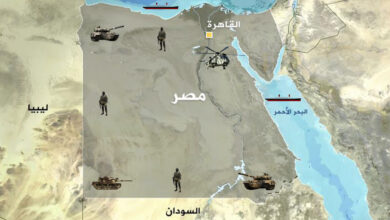Kais Saied and the Palestinian Cause – Between Shibboleths and Actions

These days mark the fourth anniversary of the coup against the state institutions in Tunisia, and with it continues the persecution, harassment, abduction, and imprisonment of anyone the current ruling authority sees as a threat to its continued dominance and control. The people’s boycott of all electoral stations has come as a major shock to the current regime, the latest example of which was last week when a newly elected parliament member secured only 1% of the votes from registered voters in their district—an official statistic that clearly shows the extent of the regime’s isolation and the popular rejection of the institutions running the country today.
Amid the absence of constitutional, institutional, and popular legitimacy, and in a climate of tension, economic decline, and the lack of any real prospects for progress or meaningful reform, the resident of Carthage Palace, President Kais Saied, now resorts to speaking about Palestine, Palestinian rights, and Israeli violations, taking advantage of an occasion where he received one of the advisors of U.S. President Donald Trump.
Once again, the man exploits the most honorable and noble cause that unites Tunisians: Palestine. He repeated familiar phrases that Tunisians have heard from him many times before, but without ever seeing any actual implementation during his six-year presidency. It’s worth noting that foreign policy and the Palestine issue have always been within his jurisdiction, even before he seized full control by dissolving the parliament, suspending the government, and paralyzing constitutional institutions.
He has previously attacked his political opponents, accusing them of “betrayal, falling into the arms of Zionism, and participating in Masonic circles in Tunisia.” He has repeated his rhetoric claiming that “Palestine is a battle against global Zionism, and there will be no backing down from this position. We work with all our brothers across the world until Palestinians regain their full land and establish an independent state with Jerusalem as its capital.”
The core issue, however, is that this man violates the rights of Tunisians while verbally calling for support for Palestinian rights against an occupation that violates international agreements that bind Tunisia. He demands the application of international law for Palestine, while disregarding it at home.
At the same time, he attacks the Tunisian state, dismantles its unity, and undermines its institutions—while his circles and interpreters speak of their keenness for Palestinian reconciliation.
President Kais Saied knows he has no credible record in supporting the Palestinian cause, yet he dares to attack those who have consistently and genuinely supported it through their human rights and political work.
Today, while his official presidential page continues to post slogans and videos, there is not a single official declaration or publication of any concrete action supporting the Palestinian cause. In fact, we have documented at least 25 measures that go against the interests of the Palestinian people and their cause. Some of the most recent concrete actions, which are not reported by Tunisian media or the presidency’s official page, include:
1. Ongoing prosecution, imprisonment, and trials of activists involved in campaigns to boycott Israeli companies and interests in Tunisia—while, at the same time, ships belonging to boycotted companies are allowed to dock in Tunisian ports.
2. Tunisia participated last month in military exercises in Morocco, where the Israeli presence was significant, yet Tunisia neither withdrew nor explained to the public what benefit it gained by joining exercises alongside Israel.
3. In recent months, Tunisia participated in several conferences and forums where Israel was clearly represented—such as a security conference in Germany. Some of these were attended by Tunisia’s Prime Minister or Defense Minister, meaning the political leadership—not just technical staff—were involved, contrary to what regime supporters claim.
4. Tunisia still refuses to join the lawsuit filed by South Africa against Israel, which has gained the support of around 20 countries in recent months.
5. The current government has not worked to facilitate the passage of aid convoys to Gaza, despite its close relations with the parties blocking such aid—namely Haftar and el-Sisi.
Previously, during a meeting with the Palestinian ambassador to Tunisia, the president linked Tunisia’s “national liberation struggle” with that of Palestine. According to the Palestinian WAFA news agency, he stated, “There is a parallel between Tunisia’s national liberation battle and the Palestinian people’s liberation from Zionist occupation.” Yet to this day, no one knows what imaginary “liberation battle” he speaks of in Tunisia or how it connects with the Palestinian struggle.
This is a reminder of some of the events that occurred during his presidency—documented in past writings and available for reference by date. All these facts confirm that he cannot be trusted to speak sincerely about the Palestinian cause, nor can he be trusted with any cause, having broken his oath to Tunisia’s constitution and abandoned all his promises, including genuine support for Palestine:
1. He had announced that Egypt’s foreign policy was his foreign policy, and his first political statement after his election was that he would restore the luster of Francophonie with a new and innovative approach. So, could someone whose policy was Egyptian and Francophonie-focused, and who directed his efforts in this way, really be opposed to Zionism and Freemasonry as he claims?
2. The man declared that the French occupation of Tunisia was a form of protection, and when asked about his opinion on those who demand an apology from France, he said that anyone who apologizes condemns themselves. This was his policy and perspective. At times, he says that he supports a fully historical Palestine with Jerusalem as its capital; at other times, he says he supports international legitimacy. Sometimes, he claims that no state called Israel exists, and other times, he boasts about the achievements of the Egyptian army. Therefore, anyone following his statements would find themselves faced with a chaotic mix of ideas that have no logical connection.
3. The man failed to prove any personal achievements, either for himself or his circle, in relation to Palestine. He claimed that his grandfather had protected Jews from persecution during the Nazi period, but of course, no historical evidence could be found to confirm this. This statement came in the context of defending himself when some Zionist media circles targeted him to intimidate him with accusations of anti-Semitism. He quickly tried to clear his name by invoking the story of his grandfather, which cannot be relied upon because, first, it is unproven, and second, it is not related to him personally. He is accountable for his own actions, not those of his grandfather, assuming this claim is true.
4. The man lacked the courage and political will for real action and communication with Palestinian officials, particularly the resistance leadership, which enjoys significant support from the Palestinian people. The Palestinian factions sought to communicate with Tunisian state representatives, but despite promises and delegations arriving to arrange meetings, these promises were not fulfilled. Even though Algerian efforts were made to arrange a meeting between the martyr Ismail Haniya and Kais Saied in Algeria, Saied avoided it, offering weak excuses.
5. Why did Saied ask his parliament and MPs to abandon the bill to criminalize normalization when that was the main slogan of his 2019 electoral campaign? Isn’t it true that Kais Saied owes a debt to the Palestinian cause and should repay it? Wasn’t his slogan “Normalization is high treason” one of the key factors that led him to power in the 2019 elections? Why didn’t his parliament president deny that the president had explicitly told him that this was just an electoral slogan that couldn’t be implemented in reality?
6. Why did the presidency refuse to support South Africa in its efforts to criminalize Israel’s acts of genocide against the Palestinian people? Why didn’t Tunisia make any efforts before the International Court of Justice, considering that Tunisia is a signatory to the actions that have been criminalized? Where does the problem lie? Why the hesitation to even support South Africa? Is the claim of not recognizing Israel politically, legally, and intellectually logical and acceptable?
7. In 2020–2021, Tunisia had full membership in the UN Security Council and could have done much, but it didn’t. Worse still, President Kais Saied dismissed the ambassador shortly after his appointment for participating in drafting and coordinating an open letter to support Palestine, which had been initiated by the Indonesian ambassador. Saied could not tolerate even a hint of opposition or attention from the dominant Zionist circles and quickly dismissed the ambassador in an embarrassing manner just as the ambassador was about to retire from diplomatic service.
8. He quickly appointed Tarek Al-Adab as Tunisia’s permanent representative to the United Nations. Al-Adab was just a member of the Tunisian mission to the UN, and in 2011, he was appointed ambassador to Oman, despite lacking the qualifications for such a high post. More dangerously, Al-Adab had served as the second-in-command at the Tunisian Interests Office in Tel Aviv. He had worked as an administrative officer at the Tunisian Embassy in Oman between 1994 and 1996, frequently visiting Tel Aviv, and proudly documenting his visits with photos that exist in the archives of Tunisia’s Foreign Ministry and Presidency. It is well-known that the duration of responsibility in a given country should not exceed four years, but it is clear that Al-Adab was an exception, with a career path tailored to him despite a lack of achievements.
9. It is known that Tunisia and the UAE played a very negative role at the UN. When the General Assembly convened to vote on halting the massacres against the Palestinians, each country played a role in distorting the main objective. The UAE was questioning and criminalizing the resistance, while Tunisia, on the other hand, believed the mechanisms were ineffective. The result was Tunisia voting against a resolution to halt the war on Gaza, which was a strange diplomatic precedent.
10. The Tunisian people rallied for a large and widespread donation campaign, and the government promised to deliver it to Gaza. However, it became apparent that there were many unresolved issues surrounding the process that warrant political and judicial accountability. Aid was indeed sent through the Tunisian Red Crescent and other charitable organizations, and the military helped transport it to Egypt. However, there is no proof that the Tunisian aid reached Gaza. Is it possible to tell the people the truth, away from slogans and speeches?
11. Why was Tunisia’s previous demand to follow up on crimes committed by Israel in Tunisia and against Tunisians abandoned? This includes the Hammam al-Shatt massacre, the UN Security Council’s 1985 decision requiring Israel to pay reparations, the 1988 assassination of Abu Jihad, the 1990 assassination of Abu Muhammad and his companion, the assassination of Mohamed Zouari, and the bombing and destruction of the Tunisian school in Gaza in 2012 and 2014? Has the government heard about the crime of attacking the Tunisian cemetery in Gaza in the current ongoing genocide?
12. Why was the Tunisian Liaison Office, which coordinates the interests of Tunisians in Gaza, abandoned? Does the Tunisian Foreign Ministry follow up on the conditions of families and citizens who hold Tunisian passports and identities? Can the government tell the truth about the difficulties faced by a number of families, especially women, who returned to Tunisia, and whether they were really restricted in receiving care in Tunisian hospitals?
13. Why did President Kais Saied ignore mentioning or appreciating those who were instrumental in building and equipping the Palestinian Embassy in Tunisia since 2013?
14. Why did the presidency abandon the project to support an office for prisoners in Tunisia, which was one of the outcomes of the “Legal Pathways to the Palestinian Cause” conference held in October 2014 under the auspices of the Presidency of the Republic? Kais Saied was invited but, of course, did not attend and did not apologize despite prior confirmation.
15. Why was the person in charge of the Arab League office in Tunisia changed? This is especially concerning since Kais Saied had previously confirmed that the active role of the Arab League office in Tunisia should be valued and that the men who proved their ability to strengthen Tunisia’s position should not be sacrificed. For the record, the head of the office was also the deputy of the Secretary-General and had important powers. These were among the diplomatic gains achieved by Tunisian diplomacy during the Troika’s rule. Kais Saied insisted on appointing his friend Ben Issa to this position, and later involved him in his constitutional coup, weakening Tunisia’s position entirely.
16. Does the presidency have the courage to justify granting Tunisian citizenship to Palestinians who publicly declare their battles against Palestinian resistance and openly boast of excluding large segments of society, supporting illegal and unconstitutional means to govern Tunisian affairs? On what basis was citizenship granted to individuals known for their loyalty to enemies of the Tunisian people and their democratic path?
17. Can the presidency be honest with Tunisians, both at home and abroad, about its actual relationship with the Palestinian cause and through whom is it being pursued?
18. Why has Tunisia’s stance on the Palestinian cause remained isolated and without benefit or influence? Does Tunisia today play any role in efforts to halt the aggression, genocide, and destruction against the Palestinian people?
19. Why hasn’t the presidency over the past years declared the constraints and pressures it faced regarding the Palestinian file? Did Tunisia really face pressure to isolate Algeria and undermine it through Emirati and Egyptian efforts in Libya (Hafter) and Sudan (Hamidti)?
20. Is the renewed rejection of normalization based on intellectual conviction, political vision, and collective will, or is it merely yielding to regional pressures that Saied and his group are not equipped to confront?
These are some points that must be addressed to assess the seriousness of Kais Saied’s statements. It is certain that Tunisia, as a people and future ruling system, will continue on the path of genuine and effective support for the Palestinian cause, without populism, dependency, or fooling the people and their minds.
Tunisia will surely correct past diplomatic missteps, including not voting on the resolution to halt the war or making serious efforts within international law to stop the genocide against the besieged and devastated population of Gaza, where the worst crimes are currently being committed.




